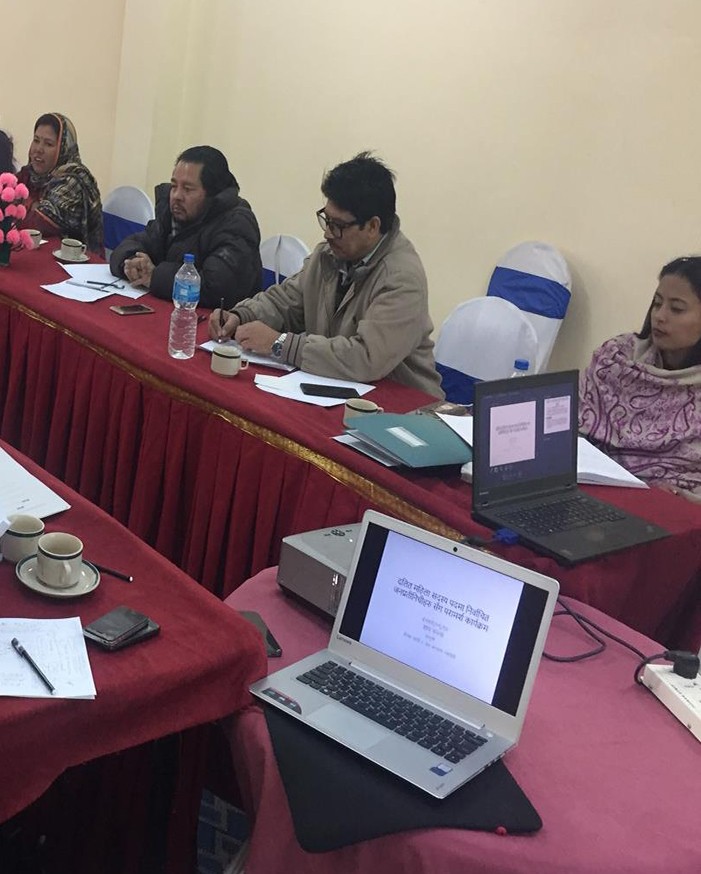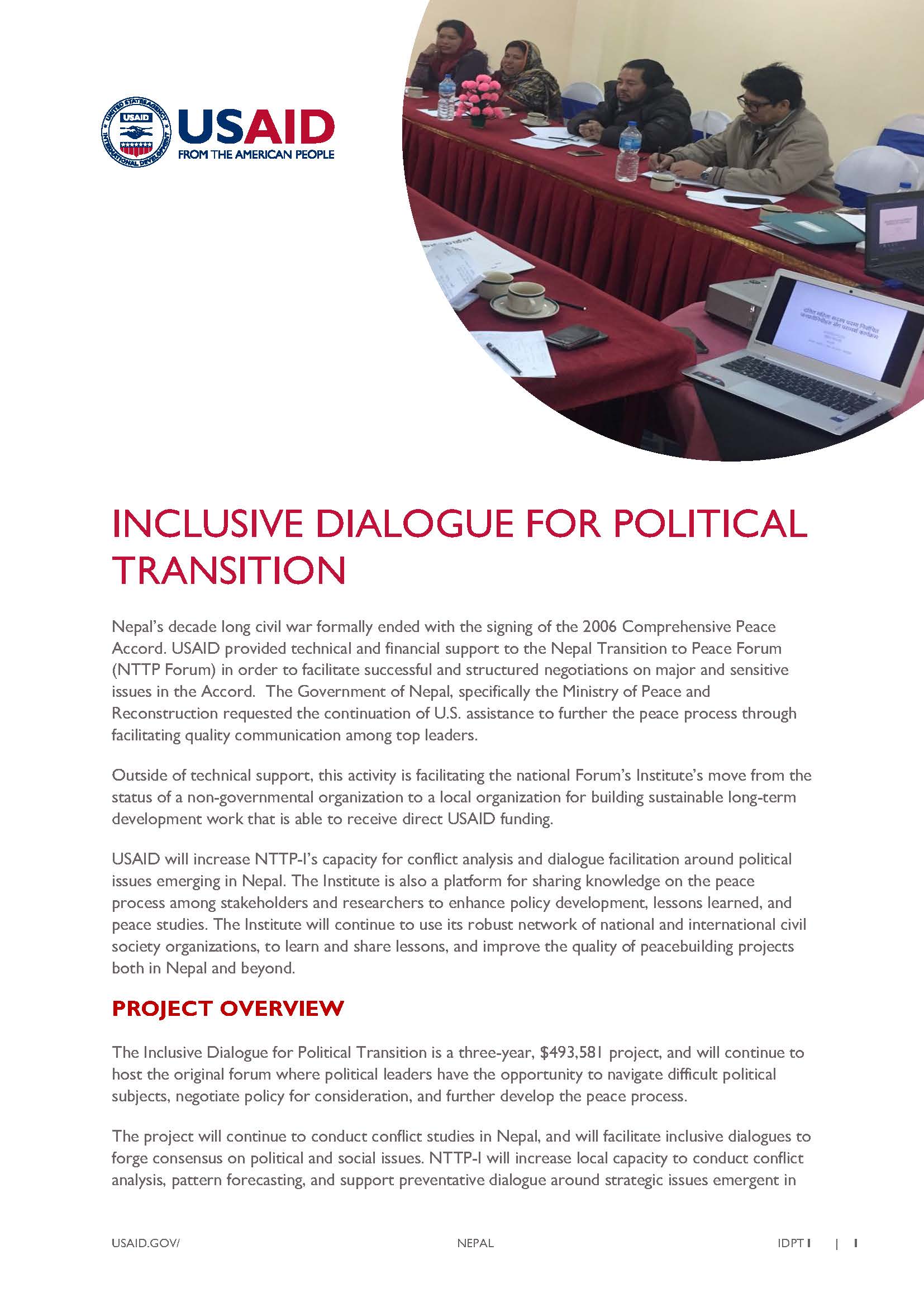Speeches Shim

Nepal’s decade long civil war formally ended with the signing of the 2006 Comprehensive Peace Accord. USAID provided technical and financial support to the Nepal Transition to Peace Forum (NTTP Forum) in order to facilitate successful and structured negotiations on major and sensitive issues in the Accord. The Government of Nepal, specifically the Ministry of Peace and Reconstruction requested the continuation of U.S. assistance to further the peace process through facilitating quality communication among top leaders.
Outside of technical support, this activity is facilitating the national Forum’s Institute’s move from the status of a non-governmental organization to a local organization for building sustainable long-term development work that is able to receive direct USAID funding.
USAID will increase NTTP-I’s capacity for conflict analysis and dialogue facilitation around political issues emerging in Nepal. The Institute is also a platform for sharing knowledge on the peace process among stakeholders and researchers to enhance policy development, lessons learned, and peace studies. The Institute will continue to use its robust network of national and international civil society organizations, to learn and share lessons, and improve the quality of peacebuilding projects both in Nepal and beyond.
PROJECT OVERVIEW
The Inclusive Dialogue for Political Transition is a three-year, $493,581 project, and will continue to host the original forum where political leaders have the opportunity to navigate difficult political subjects, negotiate policy for consideration, and further develop the peace process. The project will continue to conduct conflict studies in Nepal, and will facilitate inclusive dialogues to forge consensus on political and social issues. NTTP-I will increase local capacity to conduct conflict analysis, pattern forecasting, and support preventative dialogue around strategic issues emergent in Nepal, while simultaneously providing a space for dialogue on short-term crisis issues. The project builds on the core strengths of the forum and reaffirms the continued relevance of Nepal's peace process as it works to solidify its post-Comprehensive Peace Accord Constitution and launch its commissions to investigate disappearances and provide truth and reconciliation.
The project aims to strengthen NTTP-I as a sustainable local organization, improve its peace dialogue archives, and continue activities enabling an “Inclusive Dialogue for Political Transition” – specific objectives are:
- 1.Establish and operate that maintains neutrality from Nepali politics and is deemed credible to the Nepali people.
- 2.Develop and implement technical and cross-cutting approaches to capture, distribute, and effectively use knowledge obtained from activities.
- 3.Continue strengthening the capacity of NTTP-I to address conflicts for enduring peace by facilitating high-level political dialogues.
KEY RESULTS
- Strengthen and maintain the NTTP Forum used by second and third tier political party leaders for dialogue, and for building trust and confidence between the parties.
- Establish and support the NTTP-I Peace Resource Center and Library for stakeholders and researchers.
- Act as a resource to political parties’ Peace Units to research best practices of other peace processes; provide comparative analyses, and lessons learned for use by decision makers.
- Transform the NTTP-I into a sustainable and independent national peace entity by supporting the development of institutional documents, the establishment of a formal Advisory Council to guide the Institute’s work, and the development and implementation of financial management systems.
- Develop official and confidential archives of documents related to the peace process.
- Serve as Secretariat for publications and international conferences for commemorating the ten-year anniversary of the CPA in Nepal.
This project provides funds to the Nepal Transition to Peace Institute (NTTP-I).


Comment
Make a general inquiry or suggest an improvement.